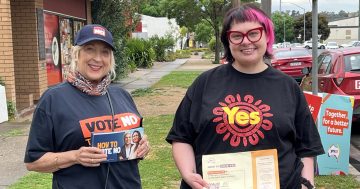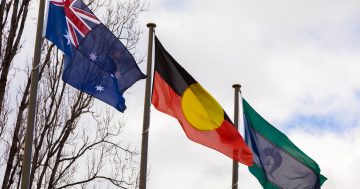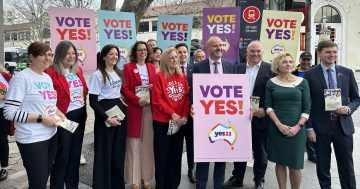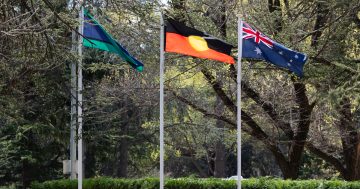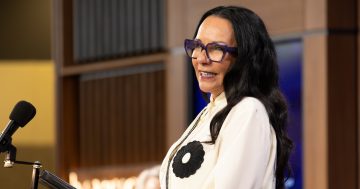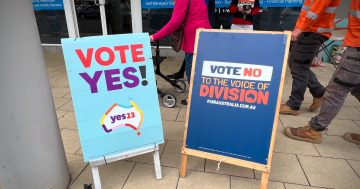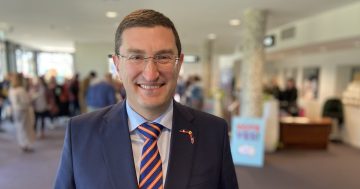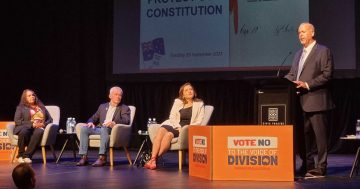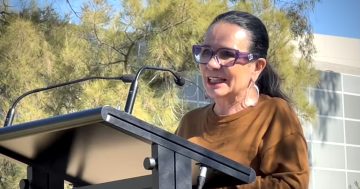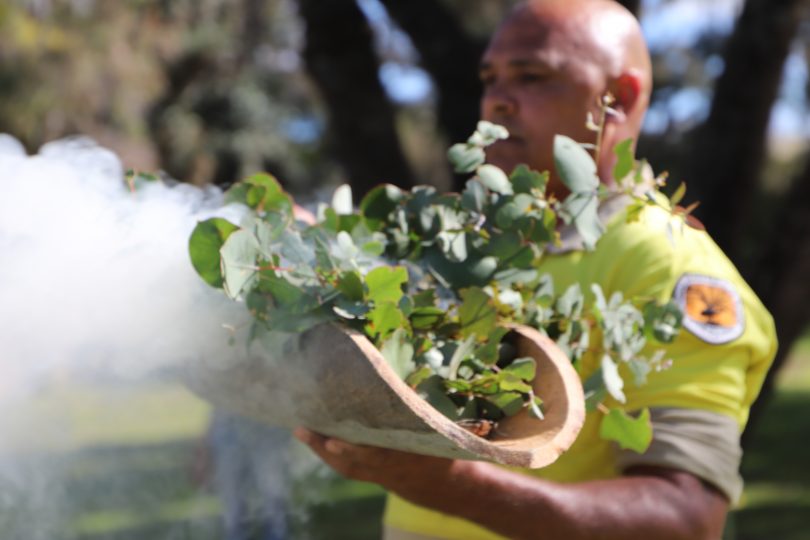
The referendum on a Voice to Parliament is an important moment for our democracy. Photo: Supplied.
The Federal Government has indicated that sometime towards the end of 2023, it will hold the first referendum since a proposal for Australia to become a republic was defeated more than 20 years ago.
Prime Minister Anthony Albanese and his Government see establishing a Voice to Parliament as a moral challenge arising from the Uluru Statement from the Heart.
Although there’s been much debate already about the details, or lack thereof, the likely shape of the Voice is clearly delineated in a report delivered to government in July 2021 by Canberra’s own senior citizen of the year (and University of Canberra chancellor), Tom Calma AO and Professor Marcia Langton.
The Calma/Langton report was prepared after an extensive consultation process and at 250 pages is replete with detailed recommendations. It’s safe to assume it will form a substantial basis for the Government’s model.
There’s more to come on the referendum wording and arguably, the Government needs to get cracking on their communications so we can all make an informed decision, but criticism around lack of details is a bit of a furphy.
The report envisages a two-way relationship between the Australian Parliament and Government and the National Voice, where each body can initiate advice or commence discussion. The proposed model includes standards for when, how and on what types of matters the Voice should be consulted.
Under the report’s proposed model, the Australian Parliament and Government would be ‘obliged’ to ask the National Voice for advice on a defined and limited number of proposed laws and policies that overwhelmingly affect Aboriginal and Torres Strait Islander peoples, relating to their social, spiritual and economic wellbeing.
Think, for example, about the Northern Territory Intervention.
There would be a further ‘expectation’ to consult the National Voice on a wider group of policies and laws that significantly affect Aboriginal and Torres Strait Islander peoples. These might include cashless welfare cards in remote communities, or disproportionately high Indigenous incarceration rates.
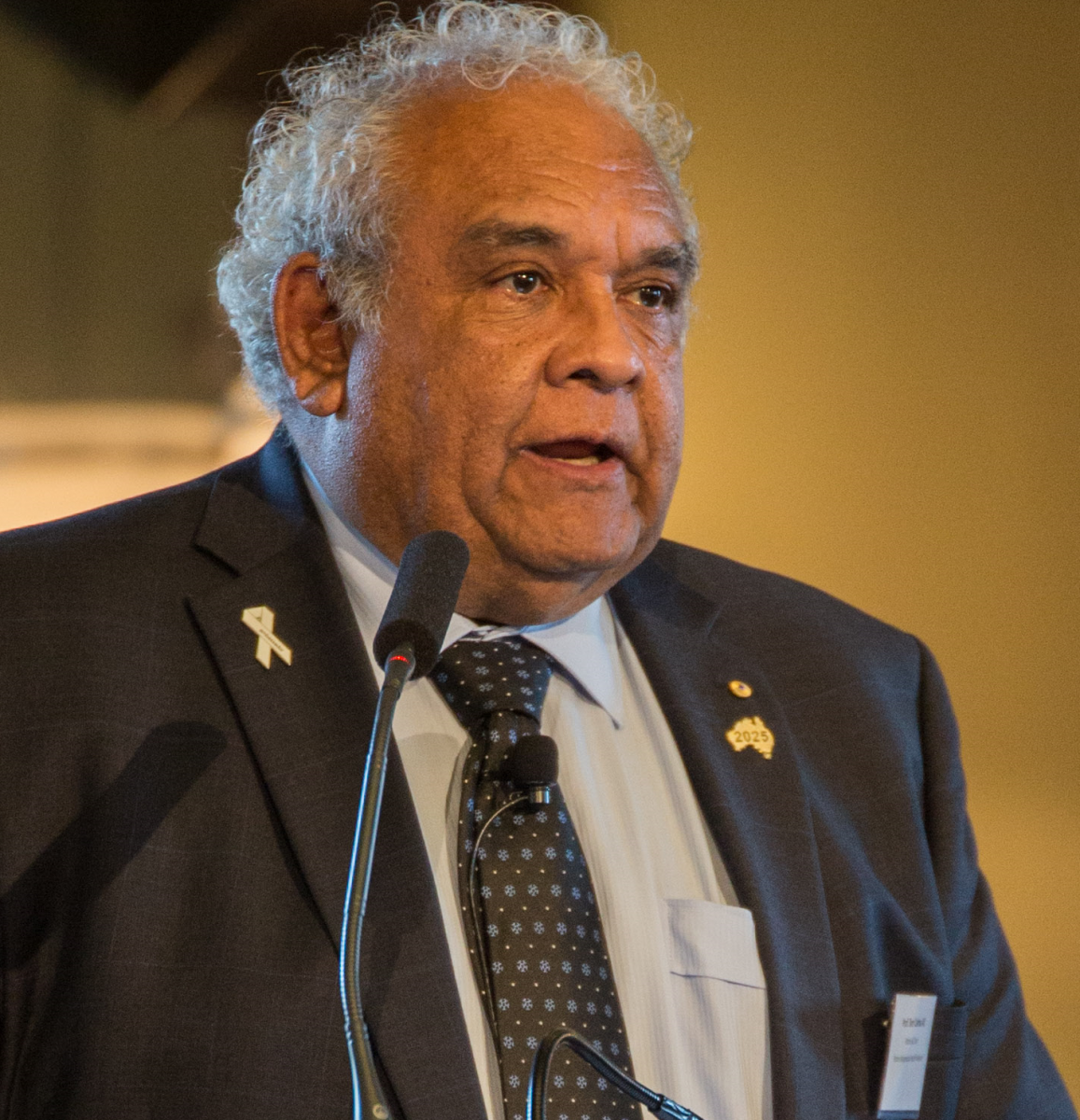
Reconciliation Australia chair Tom Calma AO (and Professor Marcia Langton) delivered the Calma/Langton Report to government in 2021. Photo: File.
The Voice obligation will centre entirely on consultation. The Voice will not mandate legislation. It can’t change outcomes on the floor of Parliament in either house. It cannot enforce laws. It will not determine federal expenditure.
It may, however, provide considerably greater transparency on who is advising the Government about Aboriginal and Torres Strait Islander issues and how representative of Indigenous Australia those advisors are.
The Voice will not have KPI’s for better outcomes among First Nations peoples because it’s not intended to do so.
The failure of Closing the Gap shows that generations-deep disadvantage is not amenable to resolution in three-year electoral cycles. Governments also don’t have KPI’s beyond fulfilling their own campaign promises.
The Voice is unlikely to affect non-indigenous Australians in any meaningful fashion, just as native title laws – once decried as the ruination of land tenure – have had little impact overall on most people.
Essentially, the referendum will ask whether the principle of “nothing about us without us” can be enshrined in the Constitution for Indigenous Australians.
In some senses, it’s equivalent to the same-sex marriage plebiscite where the question was not whether you personally might believe in same-sex marriage, but whether a civil right should be applied equally under the law.
In this case, Australians will be asked whether Aboriginal and Torres Strait Islander peoples should be formally consulted before laws are passed that pertain closely to their lives.
For many, this is a debate about the meaning of democracy. Are the tasks for the Voice better apportioned to Parliament? Will the disadvantage endured by many Indigenous people be mended if they have a greater say in how laws affecting them are shaped? Will the Voice become another layer of bureaucracy?
There are several other models for specific Indigenous representative bodies. In Scandinavia, there are Sami parliaments with differing roles that include responsibility for development funding and cultural heritage. In New Zealand and elsewhere there are dedicated First Nations seats in Parliament.
Many alternative representation models are complex and problematic to administer but represent attempts to recognise and deal with issues that are specific to Indigenous people.
The referendum is an important moment for our democracy. It requires an informed and intelligent response. It requires us to understand what the Voice is about – and what it’s not.
Region will engage with the referendum process across all our platforms. We’ll encourage honest and open debate, grounded in fact. As always, we will set clear ground rules that preclude abuse including racism but enable fair and reasonable discussions.
As a regional news organisation, our role is to talk to the whole community. We’re talking to everybody, as we always do.
As 26 January approaches and we reflect on a nation that is both old and young, let’s start that journey in good faith and make good choices.
Original Article published by Genevieve Jacobs on Riotact.







